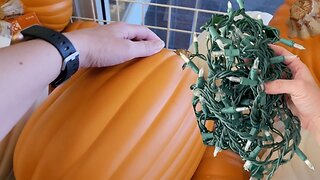Portable Antennas & Direct Energy Weapons - Celestial Reports Snippets
Celestial Report: https://celestialreport.com/
LinkTree: https://linktr.ee/celestesolum1
Celeste’s Articles: https://shepherdsheart.life/blogs/news
DISASTER RESPONSE New, Portable Antenna Could Help Restore Communication After
Disasters Researchers from Stanford and the American University of Beirut have developed a lightweight, portable antenna that can communicate with satellites and devices on the ground, making it easier to coordinate rescue and relief efforts in disaster-prone areas. It also can be a PORTABLE GROUND BASE ANCHOR FOR OPTICAL DIRECT ENERGY WEAPONS that need a base station to cut through atmospheric interference. The antenna, described recently in Nature Communications, packs down to a small size and can easily shift between two
configurations to communicate either with satellites or devices on the ground without using additional power. “The state-of-the-art solutions typically employed in these areas are heavy, metallic dishes. They’re not easy to move around, they require a lot of power to operate, and they’re not particularly cost-effective,”
This project is associated with Stanford SystemX Alliance., known for ubiquitous sensing, computing and communication with
embedded intelligence.
Two Functions in One Antenna
The antenna designed is made of fiber composites (a material often used in satellites) and resembles a child’s finger-trap toy, with multiple strips of material crossing in spirals. Just like any helix-based antenna, conductive
material running through the antenna sends out signals. Its unique structure can adjust the pattern and power of those signals in the new antenna by pulling it into longer shapes or shorter shapes. The antenna is a hollow ring that stands just over 1 inch tall and about 5 inches across – not much larger than a bracelet – and weighs 1.4 ounces. In this shape, it’s able to reach satellites with a high-power signal sent in a particular direction.
“The frequency you want to operate at will dictate how large the antenna needs to be, but we’ve been able to show that nomatter what frequency you operate at, you can scale this design principle to achieve the same performance,” The fabricated prototype was tested for deployment and structural performance at Stanford and its electromagnetic radiation characteristics at the
antenna measurement facilities..
Applications in Orbit
To be deployed in the field, the antenna would need to be paired with a transceiver to send and receive signals, a ground plane to reflect radio waves, and other electronics, but the whole package would still only weigh about 2 pounds.
-
 1:54:42
1:54:42
Matt Kim
4 hours agoThe Shawn Ryan Interview | Matt Kim #106
21.6K15 -
 2:22:32
2:22:32
Tucker Carlson
6 hours agoCalley & Casey Means: The Truth About Ozempic, the Pill, and How Big Pharma Keeps You Sick
164K325 -
 1:07:29
1:07:29
Hometalk
1 day agoTrending NEW pumpkin DIY ideas everyone's copying in fall 2024!
34.9K3 -
 8:50
8:50
Adam Does Movies
7 hours agoAlien: Romulus Movie Review - We're Back Boys!
30K5 -
 1:48:03
1:48:03
vivafrei
7 hours agoWashington Post Calls Out Commie Kamala! Aussie Breakdancer "No More Questions" & MORE! Viva Frei
76.1K84 -
 19:12
19:12
Breaking Points
1 day agoOPEN WAR As FDA BLOCKS MDMA Therapy For Vets
37.7K23 -
 1:25:42
1:25:42
The Quartering
6 hours agoKamala Harris SUED Over Lies, Harley In Full Panic Mode & Dunkin Boycott Rages
59.5K69 -
 1:08:09
1:08:09
Miss Understood With Rachel Uchitel
6 hours agoThis Week In Review - Politics & Celebrity Drama
52.8K1 -
 1:02:47
1:02:47
Athlete & Artist Show
6 hours agoThe Other Side Of The Most Famous Brawl At MSG
49.5K6 -
 1:05:47
1:05:47
The Shannon Joy Show
21 hours ago🔥🔥Daniel Horowitz TODAY On The SJ Show! The DATA Is Irrefutable: GOP Electoral Losses Are Imminent & Permanent - The Party Is Crashing & Burning Under Trump.🔥🔥
40.3K11